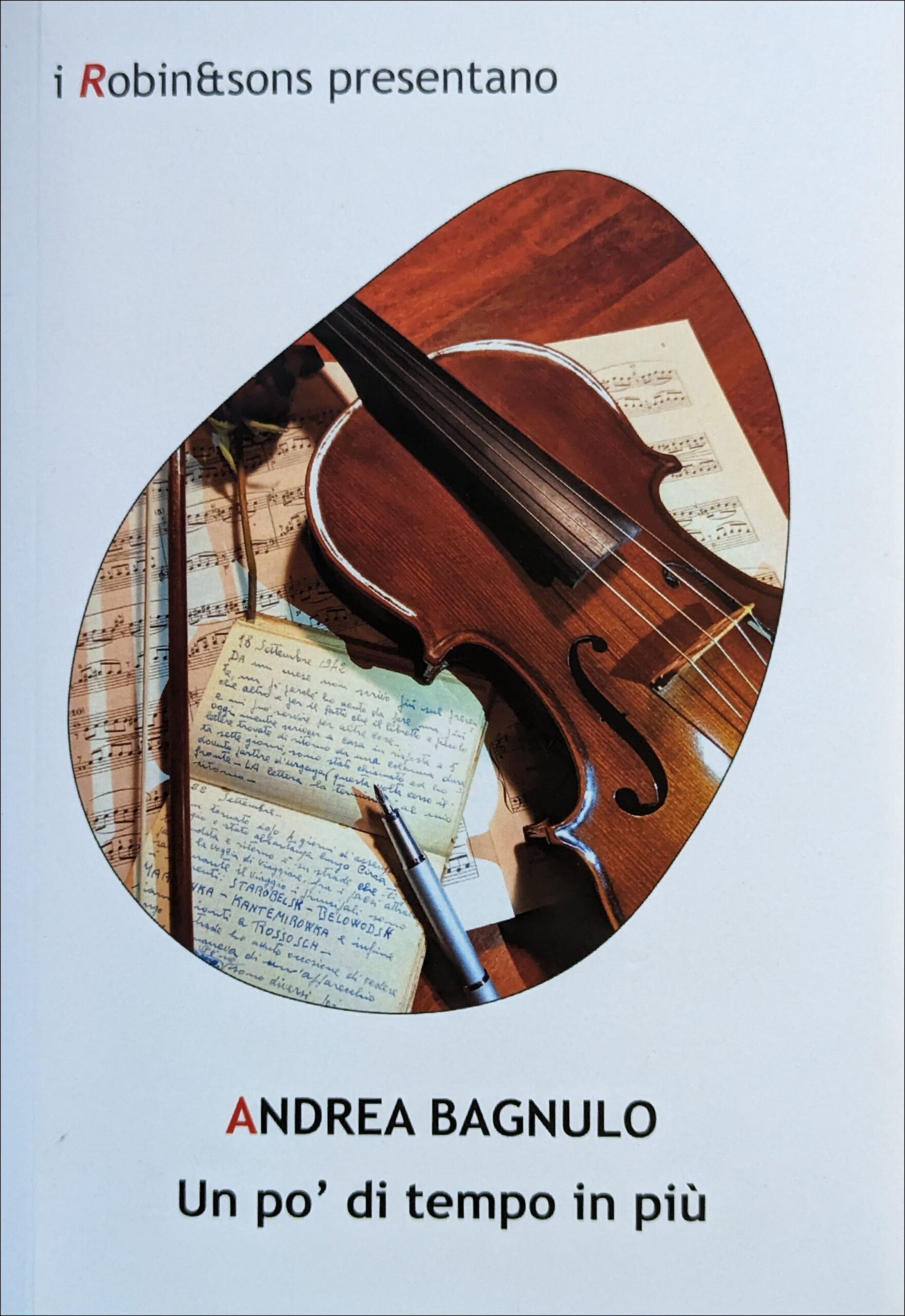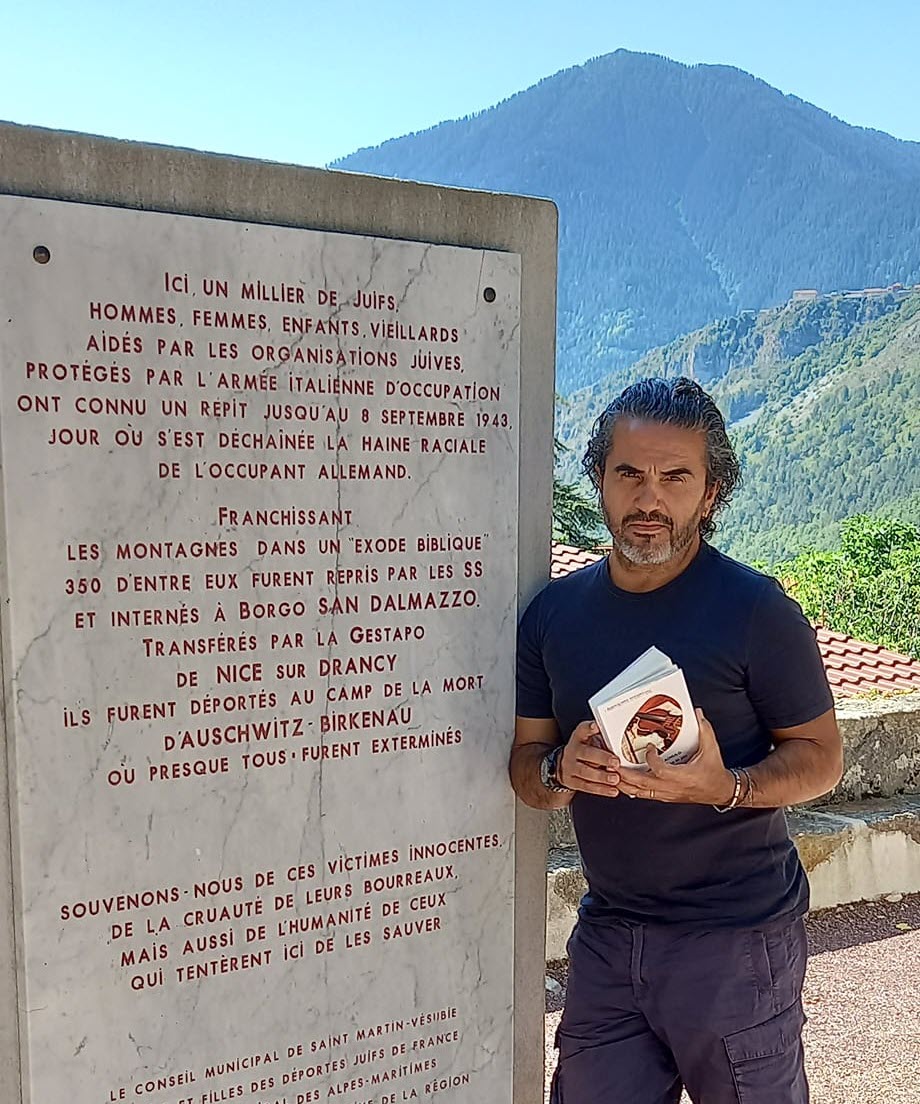Un po’ di tempo in più (294 pages, published December 1, 2021) is Andrea Bagnulo’s first novel. Bagnulo hails from Turin. His novel, like his life, is filled with music and people. He feels compelled to write as an act of love to preserve memory and guard against the inevitable distortion of time.
Being asked to write about this Italian novel was, to say the least, a bit of a challenge for me as I do not speak Italian! With Andrea’s consent, David Bernheim, president of AME 43, used an on-line translation tool to convert the entire novel into English, making it possible for me to follow the plotline. Inevitably such machine translations are awkward and inelegant in the extreme, so I cannot comment on the author’s style. Nevertheless, I do believe this novel deserves a wide audience. I hope it will be translated into other languages by skilled translators who can capture linguistic nuance and beauty.
Un po’ di tempo in più (A Little More Time in English) tells an interesting story. It is an engaging tale of friendship, human kindness, twists of fate and love lost and found. The plot is cleverly constructed, looping backward and forward in time. It sometimes returns to a previously described scene, but from a fresh perspective. Each section bears a date stamp, making it easy to follow the progression of the plot.

The novel opens with a concert scene, featuring music from Spielberg’s Schindler’s List. The scene is pivotal to the story, and we return to it time and again. Spielberg’s movie and its music lend an emotional tone to the novel.
The historical events that occurred in Saint-Martin-Vésubie during the summer of ‘43 are not too widely known. With its beautifully imagined account, this novel memorializes those events. In it the character Vinicio stumbles upon an old wartime journal kept by his grandfather. Upon reading it he discovers his Jewish roots. In September of 1994, 51 years after the events described in his grandfather’s journal, Vinicio embarks on his own journey to retrace the ancestral crossing into Italy made by his grandfather in September of 1943. His lone trek from Saint-Martin-Vésubie to the Colle Ciriegia (Col de Cerise) in honour of his grandfather is one of many truly moving moments in the book.
In my opinion, the movie Schindler’s List, released on December 25, 1993, was successful in amplifying the idea of Holocaust history in popular culture. It is a wonderful example of how the Arts and History may inform each other, working in tandem to fix historical events into cultural memory. In this spirit, Andrea Bagnulo’s novel contributes a new interpretation of our story and that of our ancestors.
Love, loss, family, suspense and music; it’s all there and more. Bagnulo has one of his characters quote Friedrich Nietzsche, “Without music, life would be a mistake”. I am tempted to add, “Without stories, life would be a mistake”.
Elaine Markowski McKee
Elaine’s mother, Margit Reich, lived in Italian-occupied Saint-Martin-Vésubie during the summer of 1943. Along with most of its Jews, she escaped over the Alps into Italy on September 8, when Italy capitulated. She was subsequently forced to flee back over the Alps, and ultimately survived the war underground in Grenoble, France. Elaine was born after the war in Paris, France and now lives in Toronto, Canada. She is a retired Occupational Therapist.

